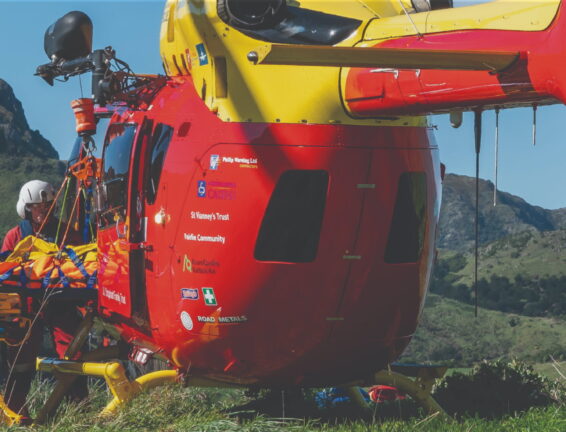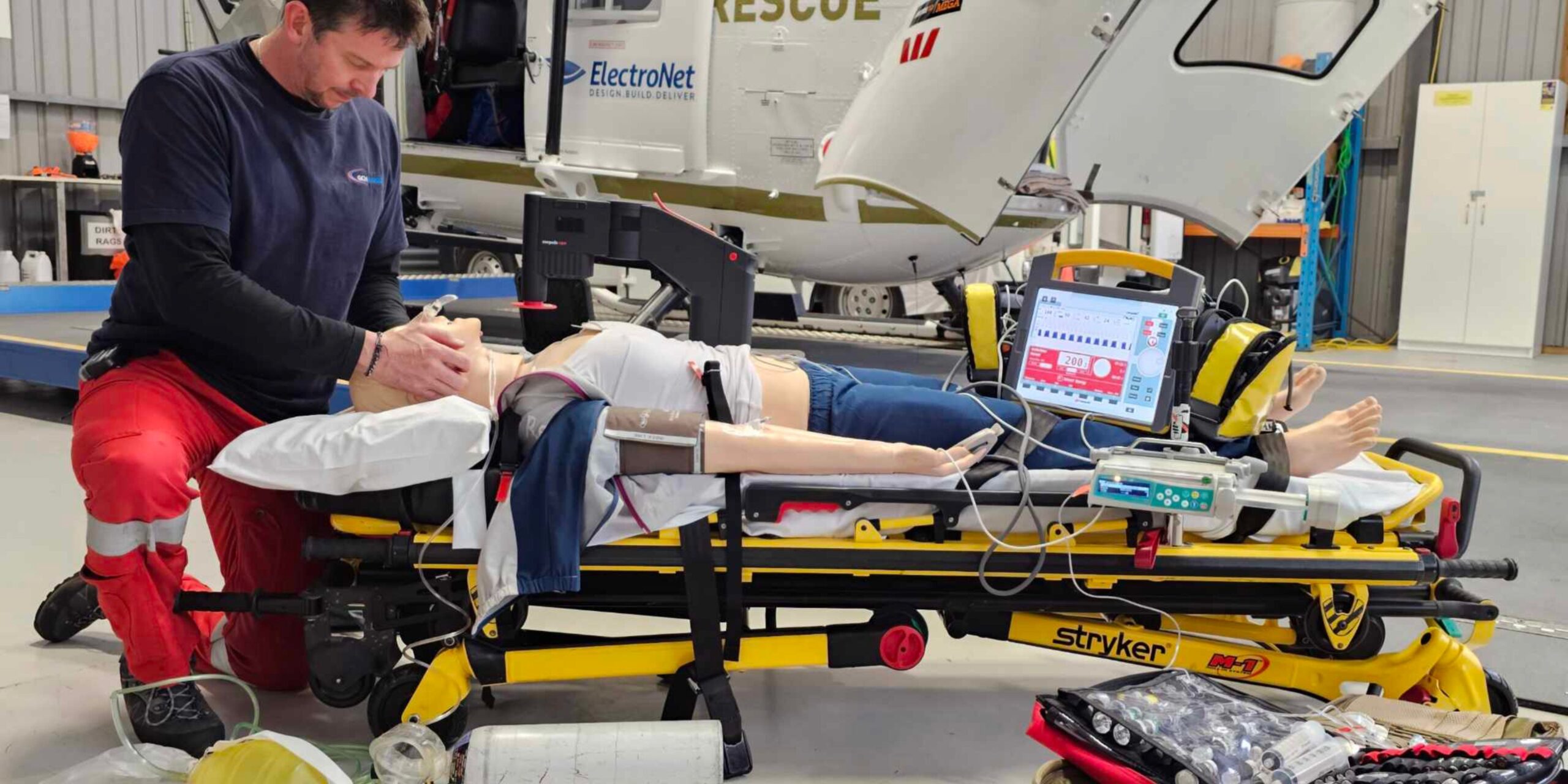Matt Aldridge was travelling at about 60kmh when
he crashed into a rocky outcrop in Christchurch’s
Port Hills. Matt was speed-flying – an advanced type
of paragliding that uses a smaller, more manoeuvrable
wing – when the accident happened in July 2018.
He sustained severe injuries to his legs and back but says he probably would have been paralysed had it not been for the rapid response of Canterbury’s Westpac Rescue Helicopter crew. Aldridge was in his fifth year of studying medicine and hoped to be a surgeon when the accident happened. He was a keen mountaineer and took up speed-flying about two years earlier, having obtained two paragliding licences. He was low-flying near to Christchurch Gondola, “pushing it quite a lot”, and scraping through the tussock.








